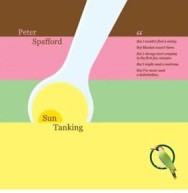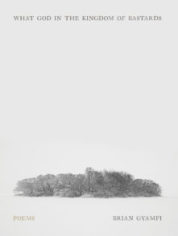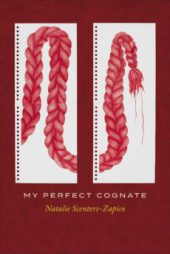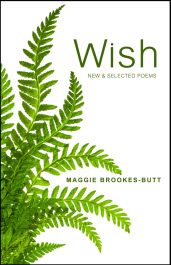
Peter Spafford, Sun Tanking,
Yaffle, ISBN 9-781813 122720,
68pp, £12.00.
It is always a delight to engage with Peter Spafford, who is ‘Director of Words’ at the innovative and vibrant local radio station in East Leeds (Chapel FM), where words and music play very happily together, enabled by a range of local volunteers and experienced creative staff. Peter himself is a fine musician and director, and his recent production of ‘Love is not all’, an exploration of the life and work of Edna St Vincent Millay, with his music collective Schwa, reprised recently at Leeds Lit Fest to great acclaim. Quite how he manages to fit in writing poetry as well is something of a mystery.
Sun Tanking is Spafford’s second book with local indie press, Yaffle, who published Frisk in 2021, and his first collection Quick was published by Valley Press. In this most recent collection, he revisits themes of family and community, and brings his sharp observation to a range of incidents which may appear to be minutiae but which punch above their weight. ‘Old dog’ invites a reflection on human as well as canine aging; ‘Small music’ ruminates on a painting by Vermeer, managing to transport us into the painting while also listening to ‘the wheeze of my neighbour’s car outside’; the final brief line almost a leitmotif for the entire book – ‘Loud as love.’
This poetry bursts open with warmth, a keen attention to detail, and an intense awareness of the ephemerality of life and the preciousness of what really matters as anno domini and life’s brickbats deprive us of those we love. Whilst he may portray poetry as a ‘Shy Beast’ that has to be coaxed into drinking ‘the bowl of syllables’ and a scattering of vowels on the top steps of his house, Spafford has no difficulty domesticating the creature. Spafford is too skilled to drown us in pages of description which makes his imagery all the more powerful: what brilliance is captured in the portrayal of the night sky as ‘smithereens of light, / like someone’s smashed God and not swept up’. (At sea). I’d not previously encountered ‘twelveworders’ (a cousin to the haiku?) but his nine examples of them are playful and sly.
The book’s title refers to a German expression meaning ‘to soak up the sun’ or ‘fill yourself up with sunlight.’ Spafford’s skilful presentation of grief as one of the unavoidable melodies in the music of life will leave you bathing in autumn sunshine. If only we really could rehome ‘Vladimir Putin in West Leeds’, his unpaid debt for ‘his Scotch egg, Daily Mail, the plums … fair forfeit for lasting peace.’
Hannah Stone
To order this book click here
Hannah Stone is the author of Lodestone (Stairwell Books, 2016), Missing Miles (Indigo Dreams Publishing, 2017), Swn y Morloi (Maytree Press, 2019) and several collaborations, including Fit to Bust with Pamela Scobie (Runcible Spoon, 2020). She convenes the poets/composers forum for Leeds Leider, curates Nowt but Verse for Leeds Library, is poet theologian in Virtual Residence for Leeds Church Institute and editor of the literary journal Dream Catcher. Contact her on hannahstone14@hotmail.com for readings, workshops or book purchases.
Brian Gyamfi,
What God in the Kingdom of Bastards,
University of Pittsburgh Press, 2025,
ISBN: 978-0-8229-6757-6, 96pp, $20.00.
Often sounding prophetic, speaking in cryptic riddles about existence, Brian Gyamfi is something of a preacher, his book akin to a sermon. The last line of the final poem of What God in the Kingdom of Bastards, “The Deer,” reads “Perhaps this is a sighting of sorts. Perhaps this is a prayer.” The very title of the book, indeed, indicates the scope of the poet’s intent.
If the collection ends in prayer, it begins, in “Regarding Little Fires”:
I stood in front of the church door
waiting for the congregation
to fly out like a swarm of bees.
I tell you I could understand the strange
tongues of the Pentecostals.
A Ghanaian-American writer from Texas, much of Gyamfi’s work explores the collision of Western religion and African spirituality. Certainly one understands this from these verses, the deep connection with God, the receiving of the Holy Spirit, as suggested by the speaking in tongues. Some poems, like “Progeny of Wounds” (“I am as dark as my grandfather”) and “A Poet Travels to the South” are located in New Orleans; others in Chicago (“Horseradish”) and other American cities (Utica, NY) or London (“Bach’s Concerto for Two Violins”). But other poems refer to Accra and Kumasi, cities in Ghana – “Scent of Others,” “Progeny of Wounds” – suggesting the worlds Gyamfi straddles, and reconciles.
Focusing on ancestral memory, Gyamfi’s work reflects an interest in hauntology, a portmanteau combining “haunting” and “ontology” (the philosophical study of being). Coined in 1993 by Jacques Derrida, the word refers to the persistence of elements from the cultural past in the present. It’s no accident that mother, father, grandfather recur throughout What God in the Kingdom of Bastards. In the poem, “Cocaine and Flowers,” Gyamfi tells us, “I stand in the mystery of dead gods,” and later in the poem he writes, “my father’s mouth tells / a better memory.
He drove for days in the blood heat to find the question he had answered
but did not know. Do others seek this question
too?
“New World” begins:
In mother’s garden the hypericum freezes
and father drinks.
The word petrichor does not exist in our language.
There’s no equivalent in Ewe or Ga
though when it rains, I rub my nose
on the cement to smell
the strong petrichor
like mother rubs my hair.
Coined by Richard Grenfell Thomas and Isabel Joy Bear in
1964, the word petrichor refers to the earthy smell produced when rain falls on dry soil. Ewe and Ga, of course, are West African languages. Ewe is spoken in Ghana and Togo. Ga is the
predominant language of the Ga people, an ethnic group of Ghana. We can see Gyamfi at work resolving, joining these realities.
The poem “What Will People Say” begins:
On Mondays, my grandfather visits the cardiologist. He believes there are
angels
walking on his chest.
It’s Tuesday and I am walking home with his old heart in a jar.
At Sea World my nanny once said, “it’s ridiculous too be given an old heart
as if it’s an object, like
expensive cement, or a leg so blistered and plunging.” Now she is dead.
Reincarnated as the centipede father squashed, she’s dead again. This is why
mother became a
therapist, for people like grandfather and
father.
Later in the poem Gyamfi writes, “Mother no longer looks for salvation in the fantasies of churchgoers / though father continues to catch rain drops.” You can see and feel the clash of cultures at work.
Black and Postcolonial scholarship inform Gyamfi’s dialogue between the ancestors and the living – references to Aimé Césaire, one of the founders of the Négritude movement that cultivates “Black consciousness,” and Wole Soyinka,1986 Nobel laureate, feature in these poems. The long poem “Praxis of Being,” which comes with an epigraph from Soyinka (“For the fire consumes all but the arsonist”), refers throughout to Soyinka’s writing; in fact, it’s like an argument taking place (“Soyinka’s words dictate anger is not a pomposity for justice, you / say, fidgeting.”)
In addition Gyamfi mentions certain recurring characters – Ama (“Horseradish,” “Storm with Rain,” “Scent of Others,” “A Poet travels to the South” – “In Accra, I met Ama at McDonald’s”); Kweku (“Storm with Rain,” “The Weight of Machines” – “Kweku, how do I shave my head?” – “Our Romantics”); Frank (“Beowulf,” “Our Romantics,” “Common Tongue” – “In the pool, Frank knows himself to be on fire.”). These characters tug and tug at Gyamfi’s own sense of identity. “I was eleven when I first saw Ama at the market,” he writes in “Scent of Others,” “then seventeen in the streets of Accra fighting a constellation of moths.”
Throughout, Gyamfi invokes God, is in conversation with God. “God, can I bargain / with the brain to hold nothing:,” he writes in “The Fall”:
unlike the soil, unlike the flood, from Armageddon, from
burials, from winter’s tongue; its hands, its cold mind.
Father’s nakedness grows tired oh but how
can I hold space for forgiveness when he wakes?
A baptism of illness at the beginning of sound. Something
cancerous but outside. God, I beg you, do not rush
your miracle.
“Kingmaker” (“God says make me so I sculpt his tongue from mud”) and “Kingdom” may be key to the collection, given their titles and how they relate to the overall title of the collection. A kingdom of bastards? Who rules here? “I believe the world is an ash jar,” Gyamfi writes in the poem “Columbarium.”
Charles Rammelkamp
To order this book click here
Natalie Scenters-Zapico, My Perfect Cognate, Copper Canyon Press, 2025,
ISBN: 978-1-55659-727-5, 104pp, $17.00.
Natalie Scenters-Zapico’s philosophical/lyrical collection is all about borders – linguistic, familial, geographical. Navigating pregnancy and motherhood and the never-ending injustices of the so-called “border crisis” between Mexico and the United States, Scenters-Zapico writes with passion about the underlying dysfunction that threatens to engulf us all, but particularly those of us, like her, whose heritage – the cognates and the agnates – puts a target on their backs.
But first of all, what is a cognate? A handful of Scenters-Zapico’s poems (“Agnate,” “Cognate,” “Agent,” “Drone”) are written as “interrogations of the Oxford English Dictionary” to spell it out (note the loaded word “interrogation,” a go-to tactic of border police). She teases out the implications. Particularly, Section I of this four-part collection includes several poems titled “En Cognato” and “Falso Cognato,” poems which combine English and Spanish words. “Cognate” comes from the Latin word cognatus, which means “blood relative.” Linguistically, cognates are sets of words that have been directly inherited from an etymological ancestor in a common parent language – like Latin. In her poem, “Cognate,” Scenters-Zapico analyzes (“interrogates”) the term as both an adjective and a noun.
In her interrogation of the noun (I.c.) she asks, “If a cognate is a relative on the mother’s side as opposed to an agnate, is this why I miss the mother of my childhood? Not the mother who fell down the stairs, who stayed in the US, who survived cancer after cancer after cancer.” Later, we will read about the border interrogations and the other trials her Mexican mother endures.
An agnate is not necessarily the “opposite” of a cognate, but an agnate does refer to a person related wholly through the males while a cognate includes both male and female relatives. In interrogating “agnate” as an adjective, in the poem “Agnate,” Scenters-Zapico writes: “Without an agnate, how will you know what to call me? The Department of Homeland Security has me listed as Scenters-Zapico de Maldonado, Natalie.” (Scenters-Zapico is married to Jose Ángel Maldonado.)
Scenters-Zapico is playful with language, especially in this first section. Three “En Cognato” poems – plus one titled “In Cognate” – combine English and Spanish translations of the same words. The first, for example, starts, “Pregnancy turned my thighs into two gray continentes” and on the facing page, “El embarazo convirtió mis nalgas en dos continents grises.” Note the languages are intermixed but “correct.” The three “Falso Cognato” poems are translations based on word sounds, but whose meanings don’t jibe. The second “Falso Cognato” poem, for instance, begins, “I tie a ropa embroidered with medals of pregnant / virgins around my waist,” and on the opposite page, “Ato un rope bordado con medallas de virgenes / embarazadas alrededor de mi cintura.” I remember my Spanish teacher from sixty years ago joking, In Spanish, the ropa is not rope, the sopa is not soap, and the butter is meant to kill ya. (The Spanish word for butter is “mantequilla.”)
In the poem, “In Cognate,” she writes:
I am trying to better understand why
the cognate is important. It is important
because it is like the coyote in the road—
a trickster, always watching.
The mirror is an important metaphor in Scenters-Zapico’s poems. It’s relation to a “cognate” is obvious. As she writes in the first “Falso Cognato” poem:
I look into language’s mirror
for a perfect reflection. I get the cognates right
by getting them all wrong.
“The Mirrors & The Mirror,” after Rita Dove, one of several “birth” poems, looks like this:
Plucked hair, Hair plucked
makes makes
me me
less animal, less man man less, animal less.
And so it continues down the page. In a different style, the poem continues on the next page, “God knows home has / no image we can agree on.” “Espejismos” (“mirages”) picks up on the mirror metaphor. It’s divided into five sections, “Plane,” “Convex,” “Concave,” “Non-Reversing” and “Two-Way.” “I assume there’s an agent watching behind every mirror,” this final section begins.
My Perfect Cognate is full of these poems about the police, the border agents: “The Trick Is to Pretend” (“I imagine police with spotlights, / a system to search my geolocation”), “The Gun & The Cowboy,” “1,723 Miles Away from Home,” “Object Mother,” “Pledge Allegiance” (“My childhood was caught on videos / border agents deleted every three months”), “Small Unmanned Aircraft Systems” (which ironically uses lyrics from “Home on the Range”), “Agent,” “Present This Receipt to CBP” (“I think of my mother / who has stopped traveling / because she’s tired of being / pulled from lines / despite her green card”), “The Aeryon R8oD SkyRaider,” “Drone,” “CCTV,” and “I Want Drone Footage” among them.
Section 3, one long poem, “H.R. 7059 in Cognates,” which comes with an epigraph by Jorge Luis Borges, likewise elaborates on the theme, with italicized cognates from the bill (also known as the “Build the Wall, Enforce the Law Act of 2018”). In her Notes, Scenters-Zapico says that her intention was to have a conversation with the text of the bill in an attempt to poke holes and build bridges. Part of the poem, por ejemplo, reads:
I have spent the last nine months
revocation designation designation subsection
erasing H.R. 7059 while a baby
designation designation general designation subsection
grows inside me. A baby
club organization association alias
I made with the man I felt
club organization association designation
in love with despite the State
federal subsection designation information information
trying to arrest me for it.
There’s a lot of heartbreak and trauma in My Perfect Cognate, from postpartum depression to state thuggery, but there are also moments of deep love and protection, as in the opening poem, “Language on Paper,” when she brings her crying baby into her bed. “I bring him
to my breast. We get close
to each other without a Word.
With a finger, I wipe his pink gums
& fill him silent. I whisper
in his ear my perfect cognate.
My Perfect Cognate is both tender and alarming, and it’s obviously a work of deep thought and passion. In our current political moment it’s almost required reading.
Charles Rammelkamp
To order this book click here
Charles Rammelkamp is Prose Editor for BrickHouse Books. His latest collection is The Trapeze Of Your Flesh (BlazeVOX Books).
Maggie Brookes-Butt,
Wish: New & Selected Poems,
Greenwich Exchange, 2025,
ISBN 978-1-910996-85-0, £9.99
Maggie Brookes-Butt’s Wish: New & Selected Poems invites the reader to
our hopeful dreams, fussing and fretting,
laughter, quiet sleep, warm skin, kind
words. Welcome to you: blood of my blood,
heart of my heart, world of my world.
The fourteen lines of her opening poem “Welcome” serve as a reassuring handshake and a hug, taking us on a journey that reveals the concerns of the poet who has been ‘writing all her life.’ Arriving at a New and Selected is no ordinary thing – it is a milestone to be celebrated.
Poems from her six previous collections (as Maggie Butt) reveal her concern for the planet, the fragility and strength of being human, not to mention her faith in the power of love. Jacqueline Saphra speaks of Maggie Butt’s everlove (2021) as ‘a love song to us all and to the earth we love, share and ravage.’ In “The Patron Saint of Eco-Warriors,” from Sancti Clandestini – Undercover Saints (2012) – a brilliant sequence celebrating the lives of imaginary saints, including the patron saints of liars, looters, tattooists, compulsive hoarders and eco-warriors, we learn:
She [the patron saint of eco-warriors] scorns the saintly micro-miracles
stigmata, healing, water into wine.
Her sights are high: if she can pull it off
her warriors will clinch the miracle
to end all miracles, for they will save the earth.
Eco-poetry may be fashionable now, saving the earth has been the poet’s concern for some time.
As Maggie Brookes, she is the author of two historical novels, Acts of Love and War and The Prisoner’s Wife, published by Penguin. Both her novels uncover stories about the resilience of women, the power of friendship and love in the most terrible of circumstances. As an ex-journalist, BBC historical documentary producer, creative writing academic, poet, and novelist, she loves researching almost as much as writing. Acts of Love and War, published in 2022, is a heartrending tale of love, courage and sacrifice, following three young British volunteers in the Spanish Civil War. The Prisoner's Wife – based on an extraordinary true story of WW2 – was published in 2020.
Wish brings her many worlds into the fold. The Maggie Brookes-Butt we meet began her journey with Lipstick, also published by Greenwich Exchange in 2007. The title poem references photographer Jenny Matthews’ observation that, in war zones, women favour bright red shades of lipstick. In “Lipstick,” the poet reminds us:
In war time women turn to red…
as a badge of beating hearts.
This crimson is the shade of poets
silenced for speaking against torture,
this vermilion is art
surviving solitary confinement.’
‘This ruby’s the resilience of girls / who tango in the pale-lipped face of death.’ The casual piling up of images of life, love, blood, resistance, torture, and death lends the poem its quiet power.
One of Brookes-Butt’s themes that runs through her work is the exploration of women’s lives and their inherent strength in holding the world together through ordinary, everyday experiences, which she captures with freshness in a poem like “Nylon Sheets.” In “Behind Me,” the author imagines
my grandmothers and all
my great grandmothers
up before dawn, shawls
pulled around their shoulders,
off to mills and factories.’
The power of love – joy and miracle – is one of her abiding themes. In “Bulbs” for Amy, the poet asks: ‘show me where I keep the love for you / that will outlast my life.’ “Fathering” explores the richness of the experience, ending with: ‘Because I could not bear to let you go / my body found a way to bring you back.’ One of the most startling poems about love in this section is “Love Seeps In.” The image is constricting, even terrifying – the image of drowning leaves one breathless. The idea of love overrunning like water
overruns a sinking ship,
snaking down corridors…
bubbling through cracks and crevices
thundering up staircases,
claiming everything.
Yet, you know what she is talking about – how love can be all consuming, feel overwhelming. In “Falling In Love,” that image reappears: ‘your delighted little dance when you see me / at the door, your arms reaching to be picked up / and each time I am drowned again.’
The theme of love/joy is wide ranging. It even finds a home for the concept of “Luck,” which as we know can be unpredictable. In “I Am As Happy,” she feels the happiness of a man ‘whose house, juddered / in a landslide,’ and comes to rest ‘just where he’d always hoped to live / overlooking the sweep of bay…’ That was not the only compensation. It was his ‘luck’ that
… opening
his front door, he finds vibration
has loosed a bag of diamonds
hidden in the rafters, which now lie
winking at him, all over the floor.
In “Pigalle,” where her daughter plans to live, overcoming her own reservations, the poet accepts that:
she will climb five flights of champagne night
where rooftops of Montmartre after dark
gleam with reflected gold and ruby light,
throw wide the shutters, sip the air’s rich wine, intoxicated, think, ‘All this is mine.’
The notes to Ally Pally Prison Camp (2011) give us a clue to a possible source of her inspiration to write her two novels years later. The poems in this collection explore the lives of ‘more than the 3,000 “enemy aliens” of German origin interned during World War I in a prison camp at Alexandra Palace in North London. These civilian prisoners at Ally Pally had English wives and children, and many owned businesses in Britain. Many had left Germany as children, or been born in England, and spoke no German, Only their passports made them ‘enemy aliens.’ The injustices of life and war are presented powerfully in “It’s Just:”
‘It’s just a cold dear.’
We all have colds,
the laundry flutters with our handkerchiefs
flags of surrender.
‘It’s just a cough dear.’
We all have coughs’…
ending with
‘It’s just a life dear.’
We all have lives.
Some spill them in the trenches
others in a cage.
‘It’s just a war dear’.
We all have war.’
A largely forgotten episode in Britain’s wartime history is explored to illustrate the lives of those caught in it.
Alison Brackenbury writes of Wish:
This is a poetry of miracles, unfailingly fresh and exuberant, written with clear-eyed, exemplary warmth. Her lines are flooded by intense experiences of a physical world, both lovely and threatened, and of human love whose tenderness is as “long-lasting as uranium, thorium, light.”
Maggie Butt’s poem, “Wish,” (from Degrees of Twilight, 2015), serves as an entrée to her Grand: New Poems – 21 new poems at the beginning of the collection and the dedication to the author’s grandchildren suggesting family, life and love – builds wonderfully towards its transcendent conclusion. It begins:
in the wheel of the stars
and the mow of the hay
in the blaze of amaze/
at the birth of the day…
and ends:
in the damp of the drizzle
the warmth of the glove
let there ever be you
let there ever be love.’
There is much joy and love in her poems, ‘… reminding, insisting, in spite / of everything – there is joy in the world, / there is so much joy.’ You wish to return to her world.
Shanta Acharya
To order this book click here
Shanta Acharya is the author of thirteen books; her publications range from poetry, fiction and literary criticism to finance. Her latest poetry collections are Dear Life (2025), What Survives Is The Singing (2020) and Imagine: New and Selected Poems (2017). Her doctoral study, The Influence of Indian Thought on Ralph Waldo Emerson, appeared in 2001 and her novel, A World Elsewhere, in 2015. www.shanta-acharya.com




